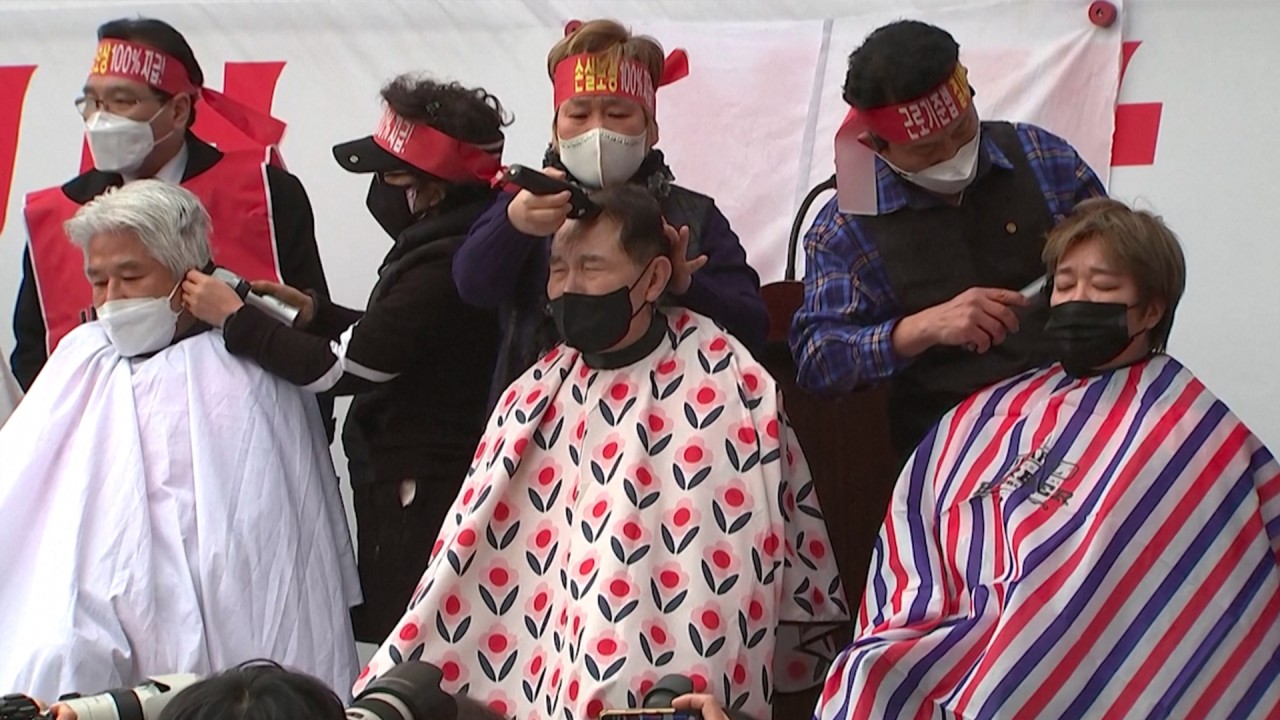
Coronavirus: Indonesia bracing for third wave as Omicron spreads; New Zealand PM Ardern is self isolating
- Indonesia reported 9,905 new infections and seven deaths in the latest 24-hour period, the highest since August last year
- New Zealand PM Jacinda Ardern was close to a positive case; Australia flies emergency team to Honiara
Indonesia is bracing for a third wave of Covid-19 infections as the highly transmissible Omicron variant drives a surge in new cases, health authorities and experts said Saturday.
The country reported 9,905 new infections and seven deaths on Friday in the latest 24-hour period. It was the highest daily caseload since August last year when the country was struggling to contain a Delta-driven wave.
Indonesia had recovered from last year’s spike in cases and deaths that was among the worst in the region, and daily infections had fallen to about 200 by December. But cases are rising again just weeks after the country reported its first local Omicron case.
Health Minister Budi Gunadi Sadikin said the next few months will be critical because Omicron is spreading “rapidly and massively” and “Its upsurge will be extremely fast … We will see a sharp rise in the near future,” he told a news conference, adding that the current wave would likely peak at the end of February or in early March.
The government has prepared mitigation measures to deal with a potential surge, including dedicating more hospital beds for Covid-19 patients, ensuring adequate tracing and testing measures, strictly enforcing health protocols and intensifying vaccination efforts in all regions, Sadikin said.
Bed occupancy rates in the capital, Jakarta, the epicentre of the country’s Omicron outbreak, rose from 5 per cent in early January to 45 per cent on Saturday, said Jakarta Deputy Governor Ahmad Riza Patria. He said “Omicron is moving too quickly” in the city, where more than 80 per cent of the 10 million residents have been vaccinated.
Pandu Riono, an Indonesian epidemiologist and academic adviser to the government, said Indonesians are still traumatised from the Delta variant when many died in isolation at home or while waiting to receive emergency care as hospitals were swamped.
During last year’s surge, hospitals erected plastic tents to serve as makeshift intensive care units, and patients waited for days before being admitted. Oxygen tanks were rolled out on the pavement for those lucky enough to receive them, while others were told they would need to find their own supply.
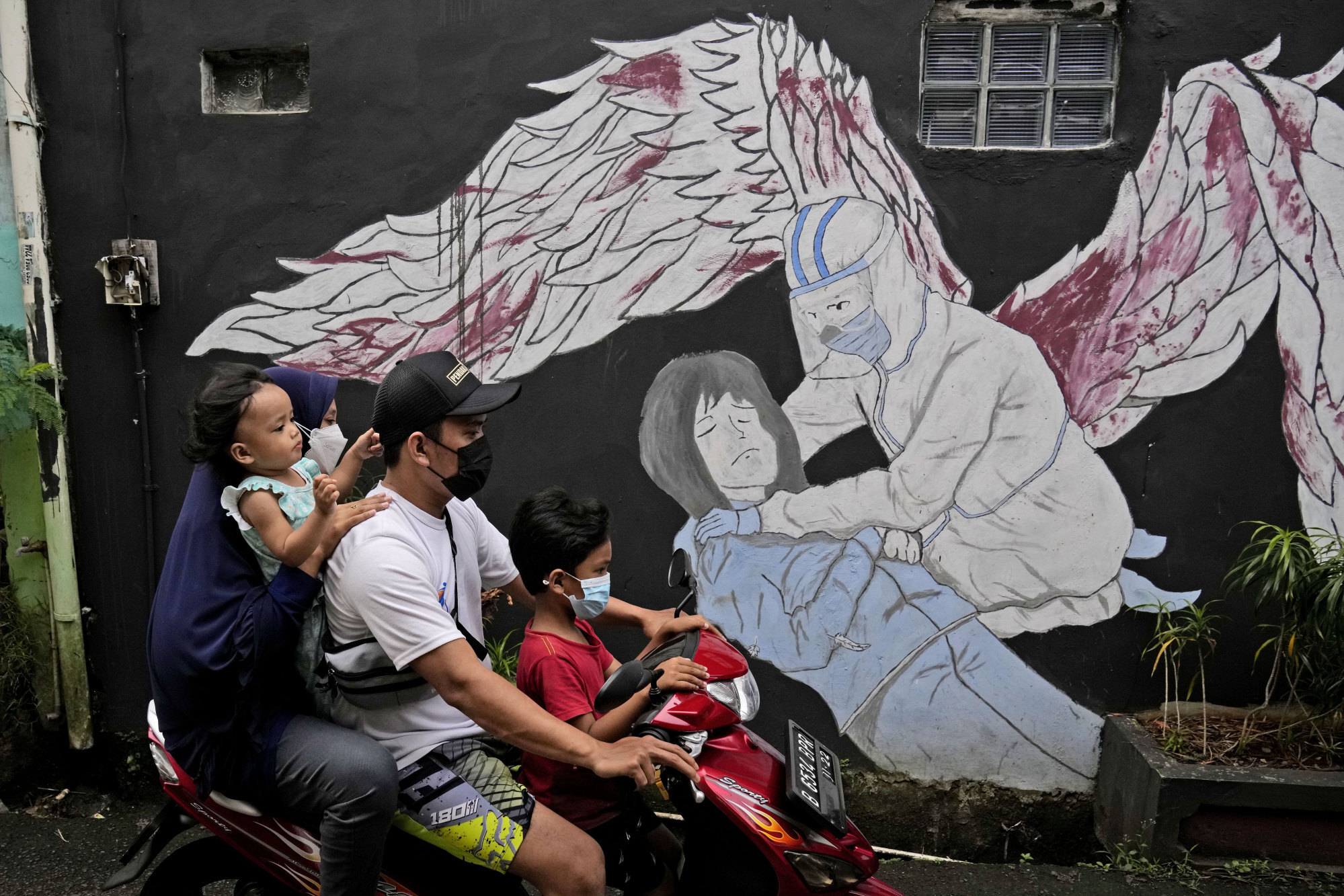
Riono said a third wave would be unlikely to push Indonesia’s health care system to the brink of collapse because Omicron generally causes less-severe symptoms than delta.
President Joko Widodo on Friday urged asymptomatic patients to self-isolate at home for five days and to use telemedicine services through which they can access doctors, medicines and vitamins for free, or to visit a community health centre.
“This is important so that our health care facilities can focus on treating patients with more severe symptoms or patients of other diseases that need intensive care,” Widodo said. Some health experts doubt the measures will be enough, given the lax enforcement.
Dicky Budiman, an epidemiologist at Griffith University in Australia, said a third wave of infections is inevitable as long as a large portion of Indonesia’s population remains unprotected against Covid-19. As of Friday, only 61 per cent of Indonesia’s 208 million people eligible for shots were fully vaccinated.
Overall, Indonesia, a vast archipelago nation that is home to 270 million people, has reported more than 4.3 million infections and 144,268 deaths from Covid-19.
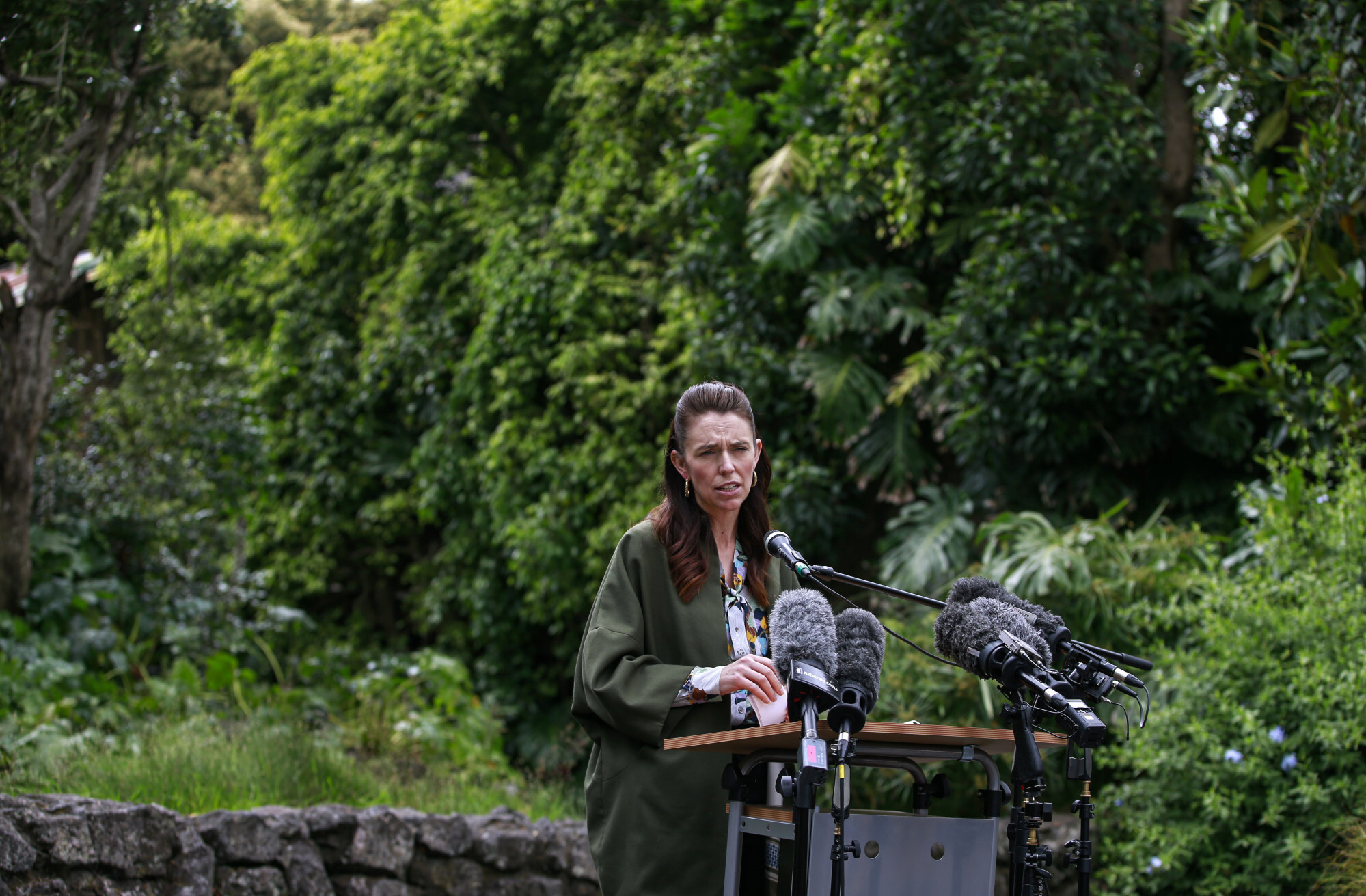
New Zealand PM Ardern self isolating after exposure to positive case
New Zealand’s Prime Minister Jacinda Ardern has gone into self-isolation until Tuesday after being deemed a close contact of a person who tested positive for Covid-19, the government said.
The exposure took place on January 22 during a flight to Auckland from the town of Kerikeri, the government said in a statement on Saturday, adding that the result of whole genome sequencing was expected the following day. That would show if the infection was caused by the Omicron variant of coronavirus, it said.
Ardern, who is asymptomatic, is feeling well, the statement added. She will be tested on Sunday and is in isolation in line with the health ministry’s directives. The governor-general and members of her staff, who were also on board the flight, are following the same isolation procedure.
New Zealand recorded 97 new community Covid-19 cases Saturday, including 11 new confirmed cases of the Omicron variant. There are seven people in hospital with Covid-19.
To date, 116 community cases of Covid-19 have either been confirmed by whole-genome sequencing as the Omicron variant or have been linked to a previously reported Omicron case.
Yesterday a total of 105 Omicron cases had been registered so far across New Zealand, meaning there was an increase of 11 Omicron cases today. There were 58 new Covid-19 cases identified at the border on Saturday.
As of 9am Saturday, 39 cases had been connected to the Soundsplash music festival in Hamilton last weekend.
“However, this number will grow as further test results are received,” the Ministry of Health said in a statement.
“Given the increase in cases associated with Soundsplash, the Ministry of Health advises all attendees to get a test, if they have not already done so. If you attended the festival, please let the testing centre know that you were at the festival.”
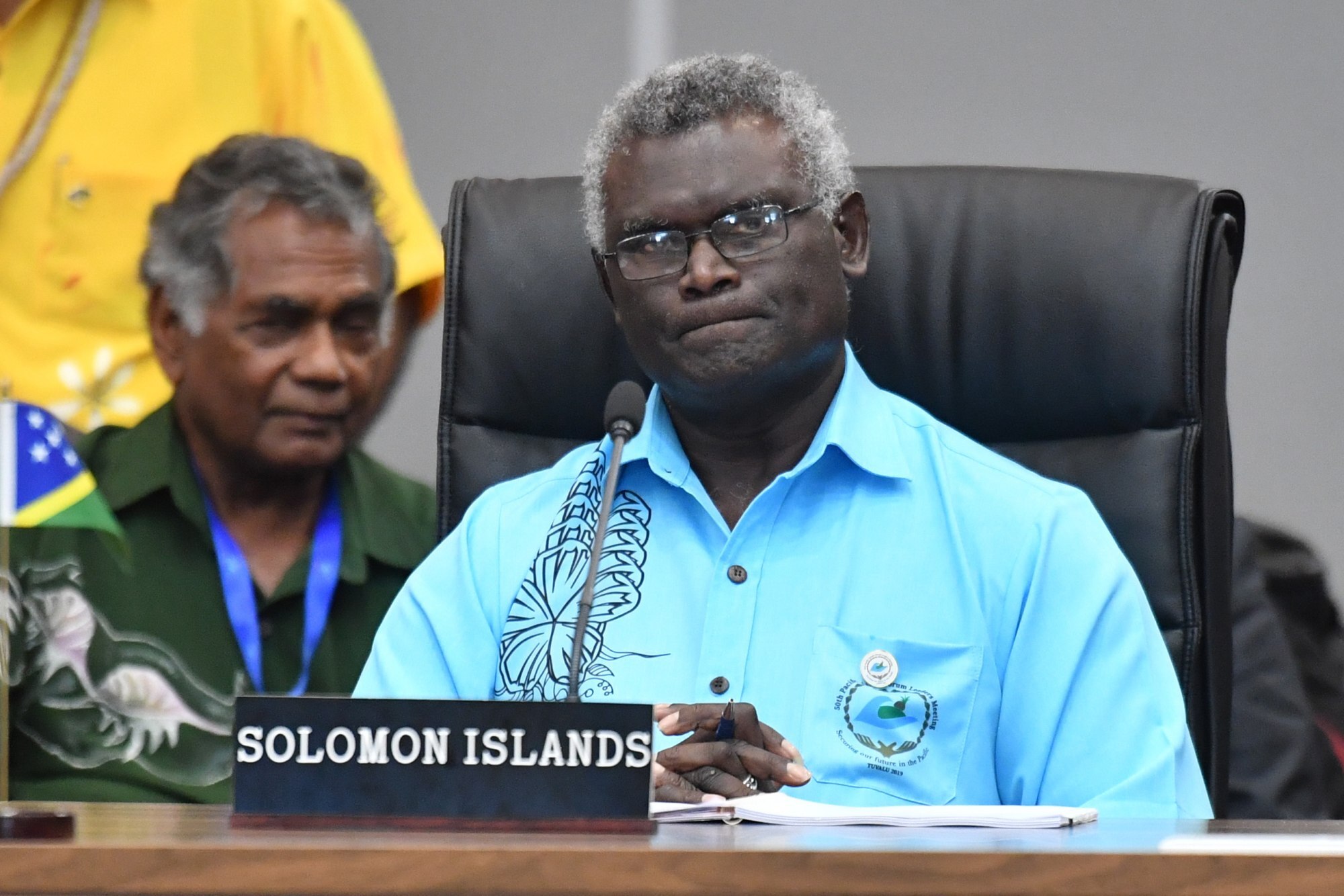
Australia flies emergency team to Honiara
Australia flew a small team of emergency medical specialists to Honiara on Saturday after the Solomon Islands requested help in battling a worsening outbreak of Covid-19.
Australian officials said the team of eight experts landed in the capital alongside a shipment of more than 37,000 vaccine doses.
“The multidisciplinary team includes specialists in emergency medicine, infectious disease control, logistics and occupational therapy,” the foreign affairs department said in a statement. “The Australian government is committed to standing with the people of Solomon Islands as they respond to and recover from Covid-19.”
Until last week, the nation of 700,000 had recorded no deaths and just 31 infections but on Friday confirmed cases climbed to nearly 900 with five deaths. Actual numbers are likely much higher due to limited testing capacity.
Although a lockdown of the capital is set to be lifted on Saturday evening, authorities are still struggling to contain the outbreak as vaccination rates remain low. According to World Health Organization data from January 22, just over 270,000 vaccine doses had been administered in the Solomons.
The Australian team is the latest form of aid sent by Canberra after the arrival of medical supplies, including oxygen concentrators and protective equipment. It is Australia’s second intervention in the Solomons in recent months after troops and police were deployed late last year in the wake of riots over Prime Minister Manasseh Sogavare’s rule.
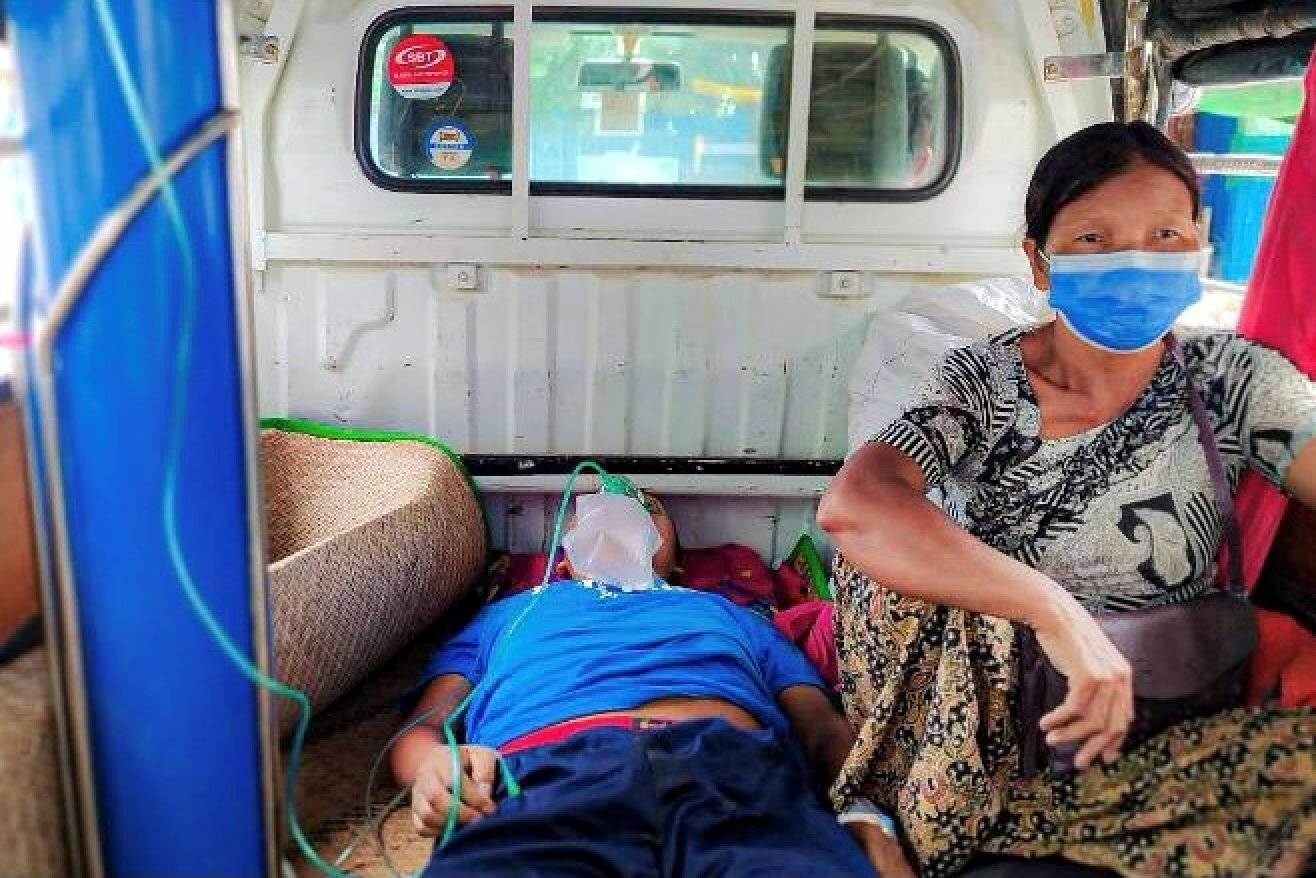
Myanmar sees first community transmission of Omicron
Myanmar reported the nation’s first local transmission of Omicron variant, as 72 new cases were detected in Tamu and Kalay townships near the border with India, according to the Ministry of Health.
“Given that local transmission of Omicron began here, people are required to strictly follow Covid rules and get vaccinated without fail,” said Khin Khin Gyi, director of emerging infectious disease at the Central Epidemiology Unit, said on Friday.
Authorities locked down a city near the Indian border after more than 150 Covid cases were reported over the past week, local media reported, without specifying the variant. The Southeast Asian nation has recorded 283 Omicron cases among 534,908 reported coronavirus cases and 19,310 deaths so far, according to government data. But earlier this week, the World Bank said in its latest report on Myanmar’s economy that the data’s reliability remains uncertain.
“Anecdotal reports suggest that Covid-19 transmission could be higher in some rural areas, particularly near the border with India, which is facing a significant surge in Omicron cases in the areas close to Myanmar,” the report said.
The health ministry said about 22 million people, 40 per cent of its population, have received jabs while the World Bank stated vaccination rates remain very low largely due to ongoing supply issues around the availability and distribution of vaccines.
Kim Edwards, World Bank senior economist for Myanmar, expected Omicron cases to significantly rise in the coming months but the impacts could be less than the third virus wave, citing regional experience and country-specific projections.
South Korean critical cases edge lower
The number of people with Covid-19 in a critical condition in South Korean hospitals slipped to 288, a two-week low, according to health authorities, even as new daily cases were at a record high of 17,542.
The surge has fuelled worries over a potentially bigger wave ahead of the Lunar New Year holiday, when tens of millions of Koreans usually travel across the country for family visits.
Korea’s Disease Control and Prevention Agency expects the number of daily cases could reach as high as 30,000 over the next few weeks as the Omicron variant of the virus spreads. The death toll on Saturday rose to 6,712. The fatality rate stood at 0.83 per cent.
Prime Minister Kim Boo-kyum earlier this week issued a special statement to urge people to refrain from travel and gatherings from Saturday. “It is no different to adding fuel to the raging flames if many people move around the country and meet each other,” he said.
Reporting by AFP, AP, Bloomberg, Reuters, New Zealand Herald

